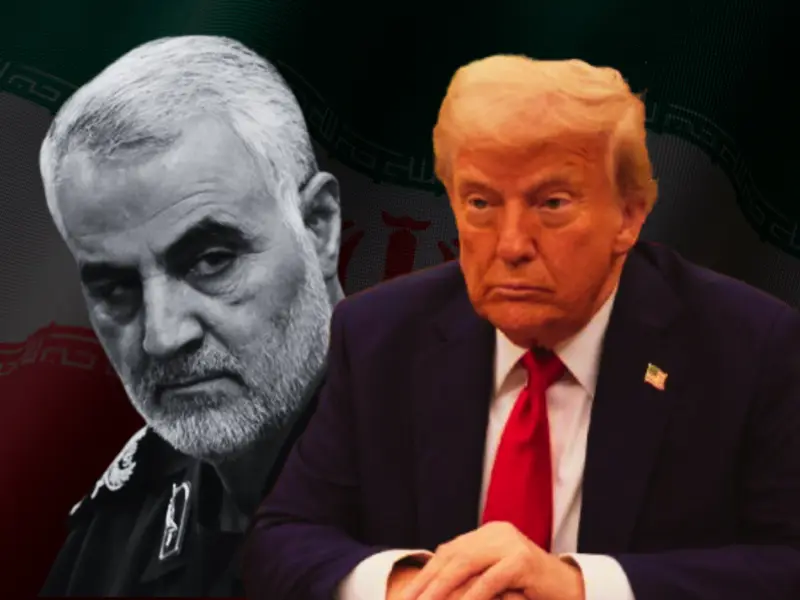Over 2,000 Islamic clerics in Iran have signed a statement calling for the assassination of former U.S. President Donald Trump, declaring his blood “halal” (permissible under Islamic law) in retaliation for the killing of Iranian General Qasem Soleimani. The move follows heightened tensions in the region and renewed threats exchanged between Iranian and Israeli officials.
The clerics’ declaration was released on Friday, August 1, by the Qom Seminary, Iran’s largest and most prominent religious institution. The statement, published by Iran International, marked a dramatic shift in tone: “The era of revolutionary restraint and patience has ended. From this moment forward, Trump’s blood and wealth are halal, and avenging Soleimani’s martyrdom is a religious duty for every Muslim and every freedom-seeking man and woman.”
Qasem Soleimani, the head of Iran’s elite Quds Force, was killed in a U.S. drone strike near Baghdad International Airport in January 2020. The operation was ordered by then-President Trump, who cited intelligence suggesting Soleimani was planning attacks on American personnel in the region. The assassination sparked global concern over a potential escalation into full-scale war between the U.S. and Iran.
The Qom Seminary’s statement was reportedly signed by clerics across a broad spectrum—ranging from junior seminarians to some of the most senior religious authorities in the Islamic Republic. Among the notable signatories were Ahmad Khatami (Tehran’s Friday Prayer leader), Mohsen Araki (member of the Expediency Discernment Council), and Mehdi Shabzendedar (member of the Guardian Council)—all of whom were appointed by Supreme Leader Ayatollah Ali Khamenei.
The statement declared: “The blood and property of this savage criminal are halal. The world’s nations will not remain silent. Retaliation is inevitable.” It framed the call as both a religious obligation and a broader act of justice against what the signatories describe as Western aggression and imperialism.
Context of Escalating Tensions with Israel
The clerical call for Trump’s assassination also comes amid renewed threats involving Israel. During a recent 12-day flare-up in hostilities between Iran and Israel, Israeli Prime Minister Benjamin Netanyahu reportedly threatened to target Ayatollah Khamenei himself.
Responding to that threat, senior Iranian cleric Ayatollah Naser Makarem Shirazi stated: “Any regime or individual who threatens the leaders of the Islamic Ummah and carries out such threats is a mohareb (an enemy of God).”
Adding further fuel to the tension, Israeli Defense Minister Israel Katz revealed in June during an interview with Israel’s Channel 13 that Israel had considered assassinating Khamenei but never acted on it due to a lack of viable opportunity.
“If he had been in our sights, we would have taken him out,” Katz said. “We wanted to eliminate Khamenei, but there was no operational opportunity.” When asked whether Israel had sought U.S. approval before planning such an act, Katz emphasized that Israel acts independently in such matters: “We don’t need permission for these things.”
Katz also claimed that Khamenei had gone into deep hiding during the conflict, severing communication with his military generals. However, that assertion has been challenged, as Khamenei continued to release public video messages throughout the period, and no credible evidence supports the claim that he had cut off command links.

International Ramifications and Risk of Escalation
The call for Trump’s assassination marks one of the most aggressive public positions taken by Iran’s religious establishment since Soleimani’s death. It also underscores the growing willingness of clerical authorities to directly call for violent retribution against foreign leaders.
Such rhetoric is likely to further complicate already-strained U.S.-Iran relations and could raise alarm internationally, particularly as Iran continues to face Western sanctions and increasing isolation due to its nuclear activities and regional influence.
Observers note that while the Qom Seminary’s declaration is not a formal fatwa (Islamic legal ruling), its moral weight among Iran’s religious base and political class could embolden extremist factions or lone actors to take violent action in the name of vengeance.


